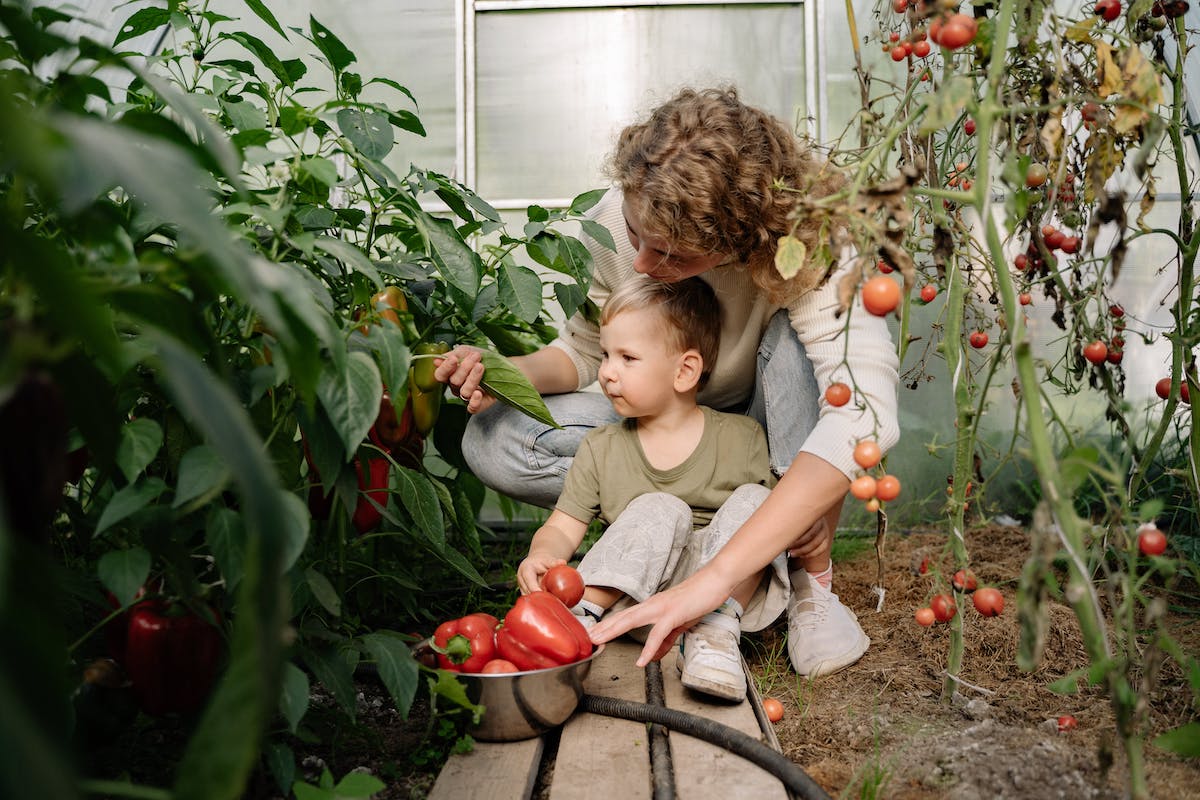Is your baby showing signs of readiness for solid foods? Introducing finger foods can be an exciting time for both parents and baby. There are a lot of nutritious finger foods to make mealtime fun and exciting and allow your baby to practice the important skill of self-feeding. In addition, nourishing finger foods can be an incredible source of vitamins for kids as well as promote gut health for kids. Here are ten nourishing finger food ideas, packed with the best vitamins for kids and babies, to try in your baby’s next meal.
1. Avocado
This nutritious fruit is an excellent snack or side to a meal. Avocados are rich in fiber and healthy fats essential to brain development. They are also high in B vitamins such as vitamin B6 and folate, which help support healthy growth, and are a rich source of vitamin E and zinc to support immune health. When picking out avocados at the store, you may see different varieties available; these all will have similar nutrient profiles.
2. Egg
Eggs are an excellent source of protein for your little ones as they begin to try table foods. Eggs are also rich in essential fats, including saturated fats, cholesterol, and DHA. These nutrients help support brain growth and vision for growing bodies. Additionally, eggs contain high levels of B vitamins and folate, selenium, zinc, iodine, and iron. Finally, they are a rich source of choline, which is a critical nutrient for children’s brain and nervous system development.
3. Bread
Bread is a simple and nutritious choice for your baby. When choosing a bread, opt for bread with fermented grains or sprouted grains as these choices are rich in protein and fiber and B vitamins and minerals like iron and selenium. Fermented bread such as sourdough is also an excellent option; this type of bread contains beneficial bacteria that can help babies build a healthy gut. Promoting gut health for kids and babies is important to consider when incorporating new foods into your baby’s diet. Pair bread with nut or seed butter or add avocado for additional healthy fats.
4. Soft fruits
Including soft fruits into your baby’s diet can add essential nutrients to their growing bodies and incorporate some of the best vitamins for kids and babies. For example, bananas are a soft fruit rich in vital nutrients such as folate, vitamin B6, vitamin C, and potassium. Apples are another nutritious option as they are packed with lots of fiber, vitamin C, vitamin B6, and antioxidants. Just be sure to peel and cook or keep raw and cut into age-appropriate sizes for your little one. When prepared in the same age-appropriate ways as apples, pears contain many essential vitamins and minerals, including vitamin C, vitamin K, and copper. They are also high in fiber to help a baby’s digestion stay regular.
5. Pasta
Various types of pasta are a nutritious source of carbohydrates to help keep your baby’s growing body energized. Pasta made from legume flours such as chickpea pasta or lentil pasta are more nutrient-dense than wheat and rice flours. You can also look for enriched pasta that offers added nutrients like iron and B vitamins. When served with other whole foods, all pasta is a healthy addition to a baby’s meal.
6. Meat and fish
Meat and fish are a nutritious addition to any meal. Chicken is a great source of protein and contains many vitamins and minerals like vitamins B6 and B12, iron, zinc, choline, selenium, and vitamin B3. Beef is another nutritious choice as it contains high protein and essential nutrients that aid your baby’s growing body: B vitamins, iron, zinc, and more. Lastly, tilapia is a healthy choice when served in moderation. This fish is low in mercury and high in protein; it also contains high levels of B12, which helps power the nervous system.
7. Tofu
This plant-based protein is an excellent choice packed full of nutrition for your baby. Tofu contains many nutrients, including alpha-linolenic acid, an omega-3 fatty acid needed for a healthy brain and vision. This protein is also packed with iron and zinc; serve tofu with vitamin C for kids and babies through foods such as broccoli or bell pepper to aid in iron absorption. Also, keep in mind that if you want to add calcium to your baby’s diet, choose a brand that includes calcium sulfate on the ingredient list, as not all tofu is fortified with calcium.
8. Cheese
Cheese is a nutritious addition to your baby’s diet as it contains healthy fats and is a great source of calcium. However, some cheese can be high in sodium, like cheddar cheese, so serving these kinds of cheese in moderation is best. Ideal low-sodium cheeses for your baby are fresh mozzarella, ricotta, or goat cheese. When shopping for cheese, make sure to look for pasteurized, low sodium, and whole milk cheeses.
9. Black Beans
Black beans are a rich source of healthy fats, fiber, and protein. They also contain high levels of B-vitamins, iron, zinc, and many more vitamins. Babies at six months of age need increasing amounts of iron when their reserves start to deplete. This depletion is why it is important to serve iron-rich foods to your baby at this time. Serve these foods with high vitamin C foods such as broccoli, citrus fruits, and berries; this will aid your baby’s ability to absorb iron in their diet.
10. Broccoli
This green vegetable is packed with the vitamins and minerals your baby needs for optimal growth and development. Broccoli provides some of the best vitamins for kids and babies. These important nutrients include vitamins A, C, K, B-vitamins, iron, and zinc. There are many varieties to choose from, but they are all deliciously nutritious for your baby. Keep in mind, vegetables can be difficult to introduce at first but continue to offer consistently even if your baby shows dislike when initially offered.




